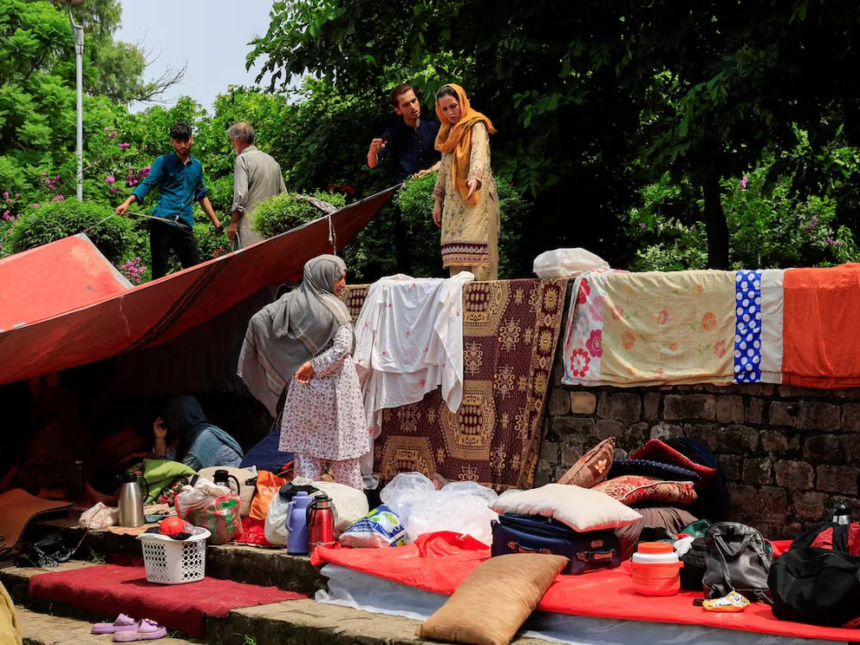RASC News Agency: In Islamabad, more than 200 Afghanistani refugee families have been cast into the open after being expelled from their rented homes under mounting pressure from Pakistani authorities. Entire households many with infants, pregnant women, and nursing mothers are now forced to spend their nights in a park adjacent to government buildings, exposed to the elements and the hostility of a state that has turned against them. Refugees say landlords were coerced by police to evict them, not for non-payment or legal breach, but simply because of their nationality. Mothers describe a harrowing ordeal: sick children crying through the night without access to medical care, newborns shivering in the open air, and pregnant women fearful of giving birth without shelter or protection. “We live in constant fear, not knowing what tomorrow will bring,” one displaced mother told RASC. For these families, survival itself has become an act of resistance against abandonment.
The UNHCR, which once promised assistance, has yet to provide tangible relief. A spokesperson admitted the situation is “dangerous,” acknowledging that undocumented refugees face imminent arrest and deportation. Yet even those with documents now find themselves targeted. The United Nations confirmed that Pakistan has begun deporting Afghanistani refugees with valid Proof of Registration (PoR) and Afghanistani Citizen Cards (ACC) ahead of the September 1 deadline a move that could affect more than one million people. For the refugees, return to Afghanistan is unthinkable. Under Taliban rule, Afghanistan has become synonymous with repression, insecurity, and fear. Women who once worked as professionals are now silenced, girls remain barred from education, and dissent is crushed with impunity. Former Afghanistan’s Interior Ministry adviser Ahmad Zia Faiz issued a stark warning: “For many of these refugees, going back would mean certain death.”
Pakistan’s campaign of mass deportation now in its second phase since June has coincided with the suspension of visa renewals, leaving even documented Afghanistani residents in limbo. Rights advocates argue that the policy amounts to collective punishment, targeting some of the world’s most vulnerable people who fled Taliban persecution only to find themselves betrayed by international silence and Pakistani hostility. Critics note the tragic irony: while the Taliban continues to preside over Afghanistan’s collapse into economic ruin and authoritarianism, refugees who escaped its brutality are being stripped of shelter and dignity across the border. The international community’s failure to intervene decisively has left these families trapped between two forms of cruelty Taliban repression in Afghanistan and systematic exclusion in Pakistan.
As one refugee father put it: “We have no country, no home, and no future. The Taliban destroyed our lives, and now Pakistan is destroying what little we have left.”






